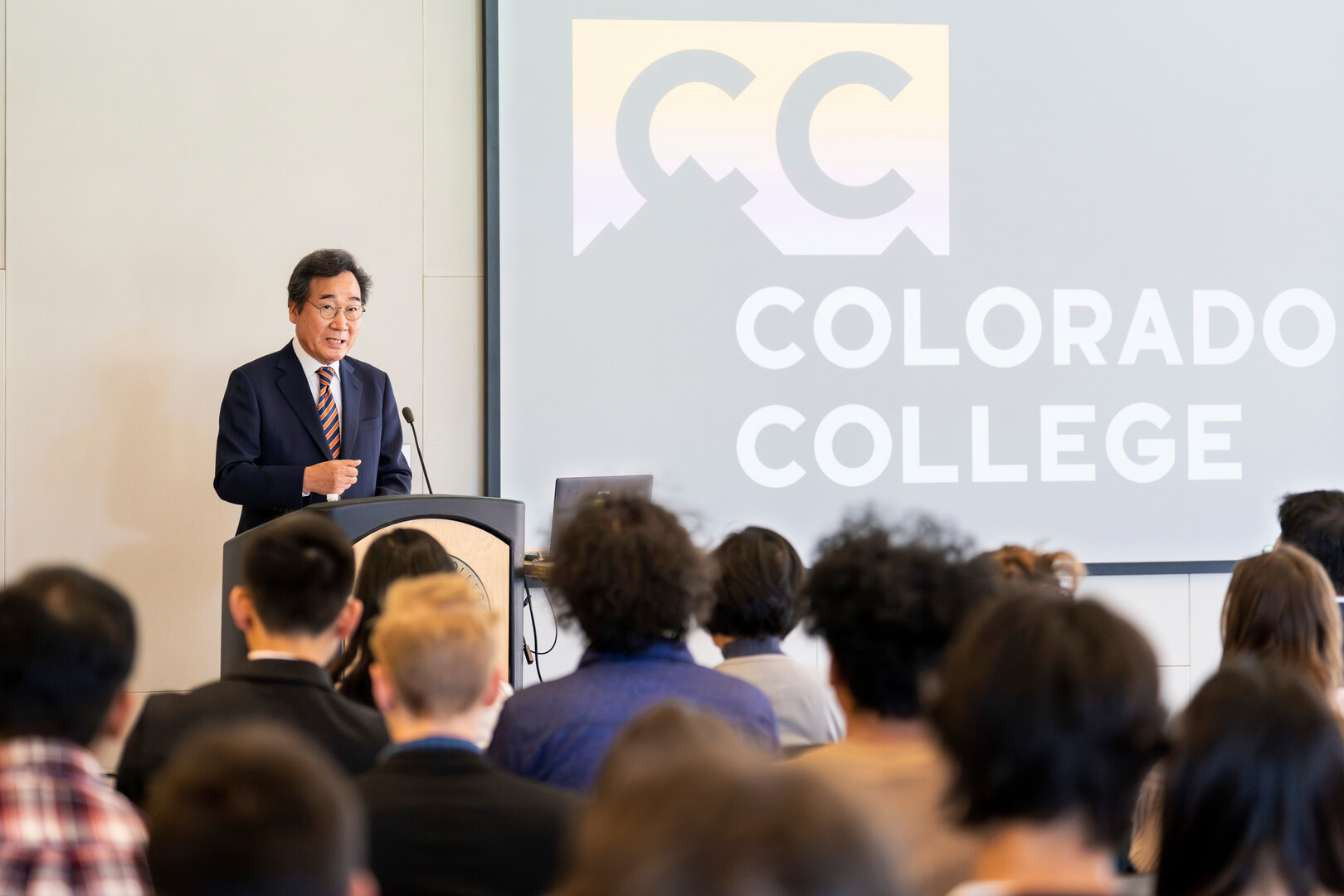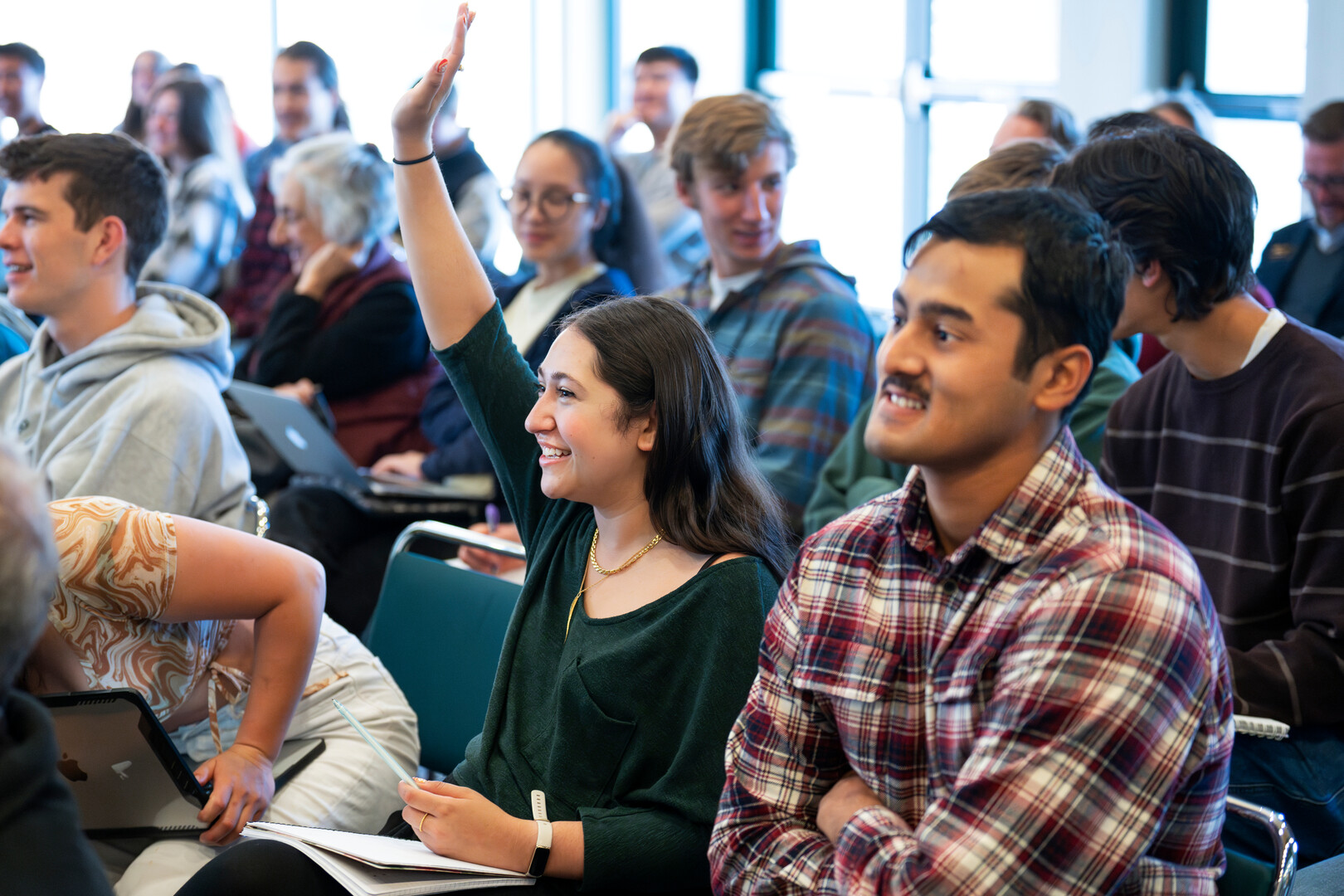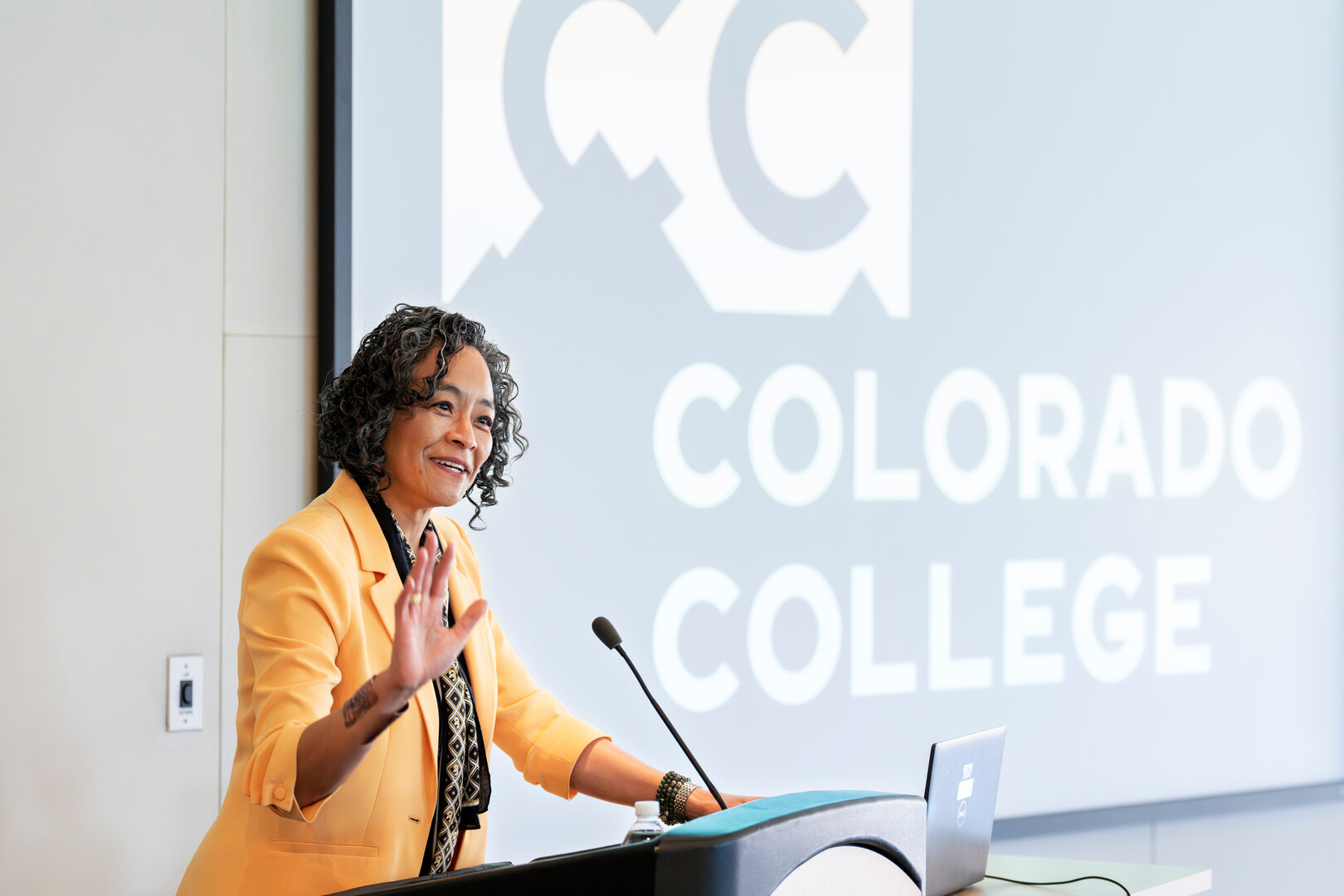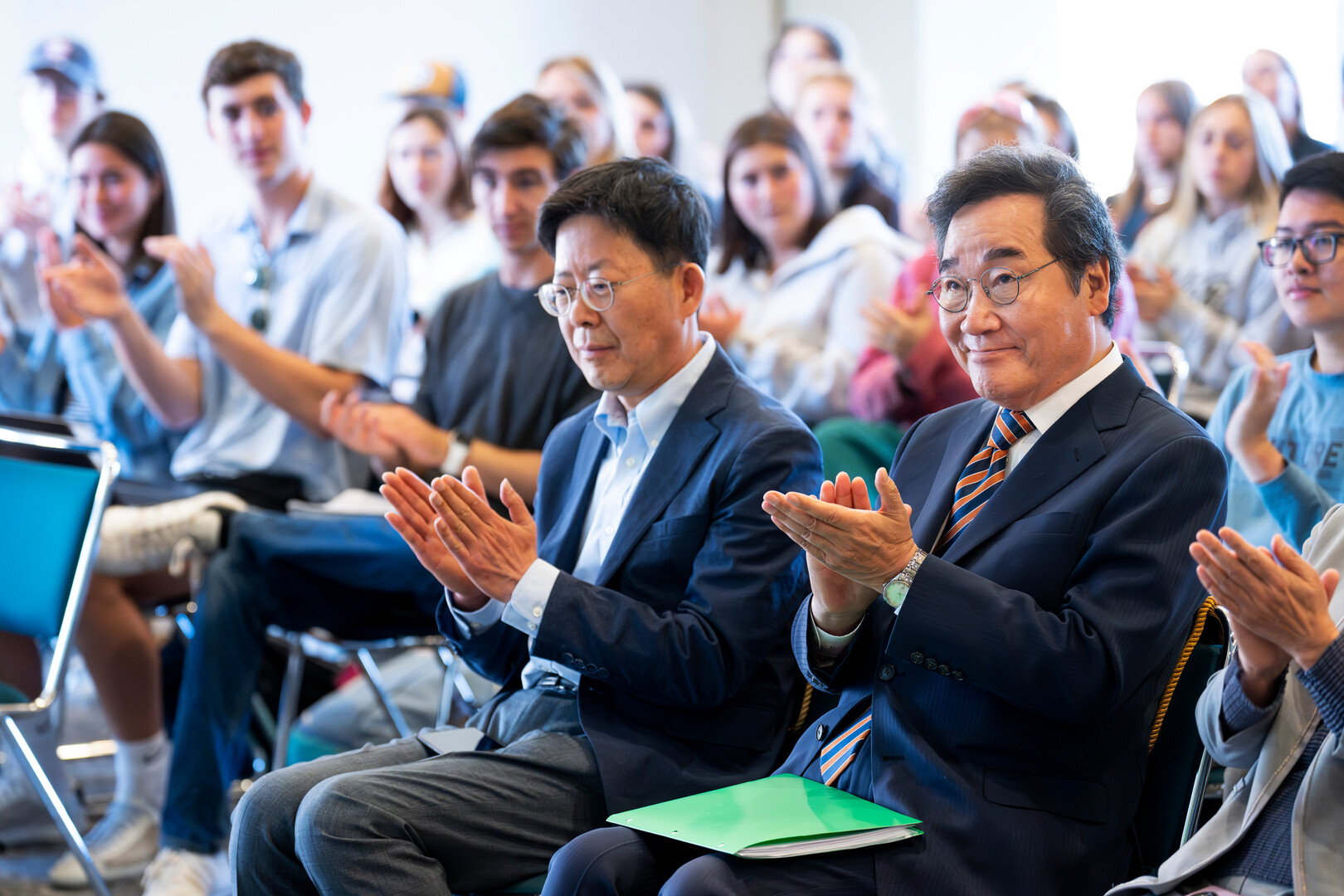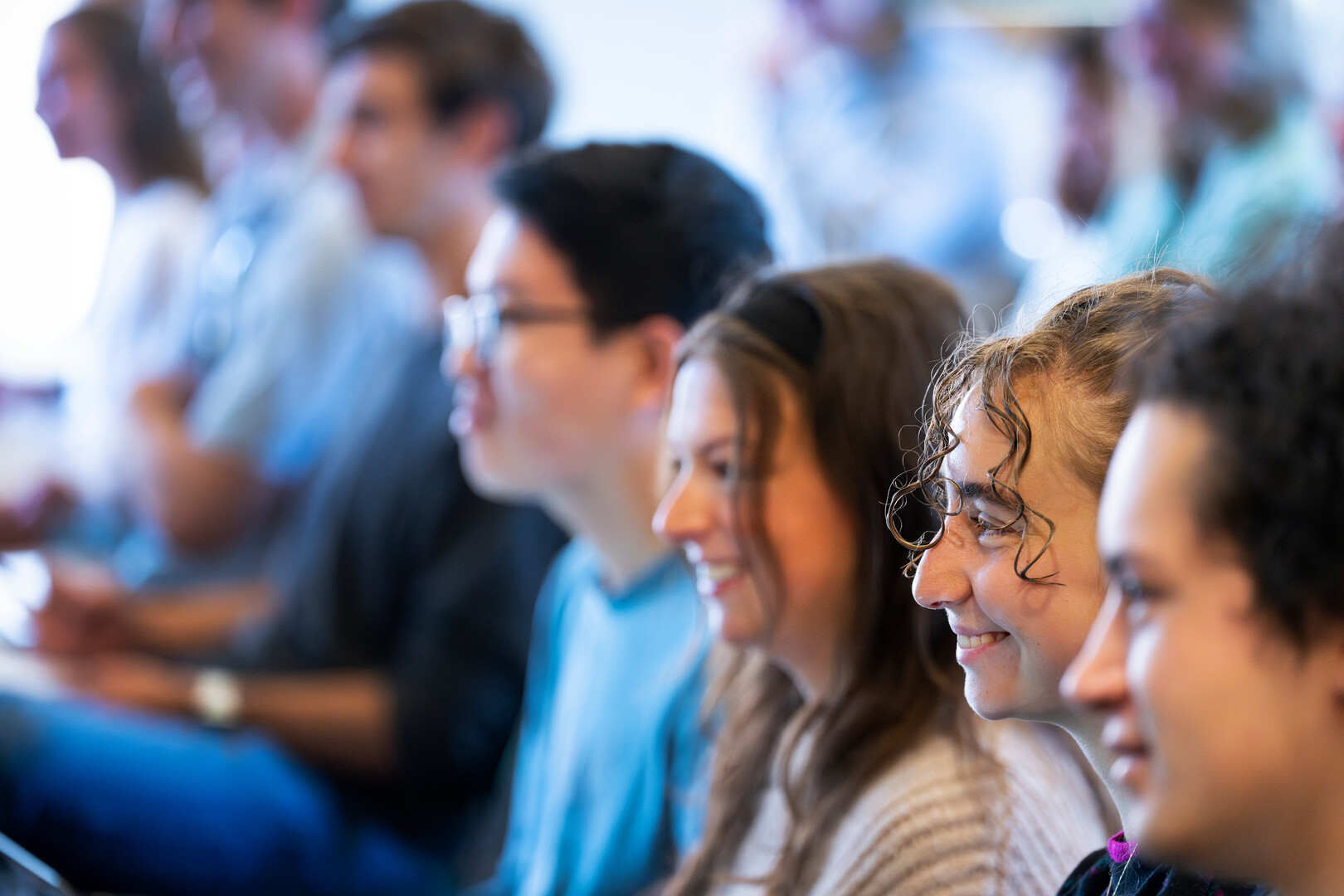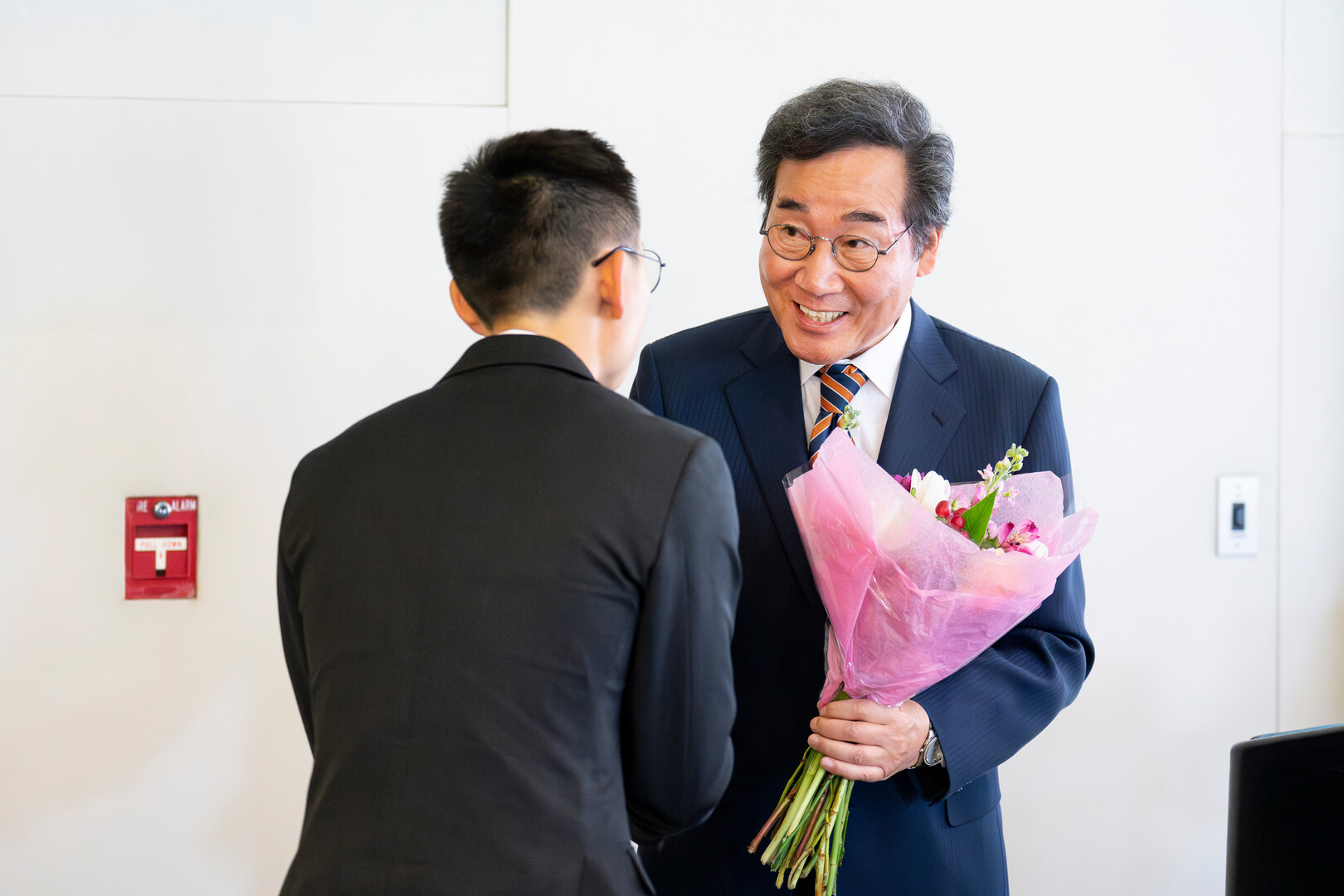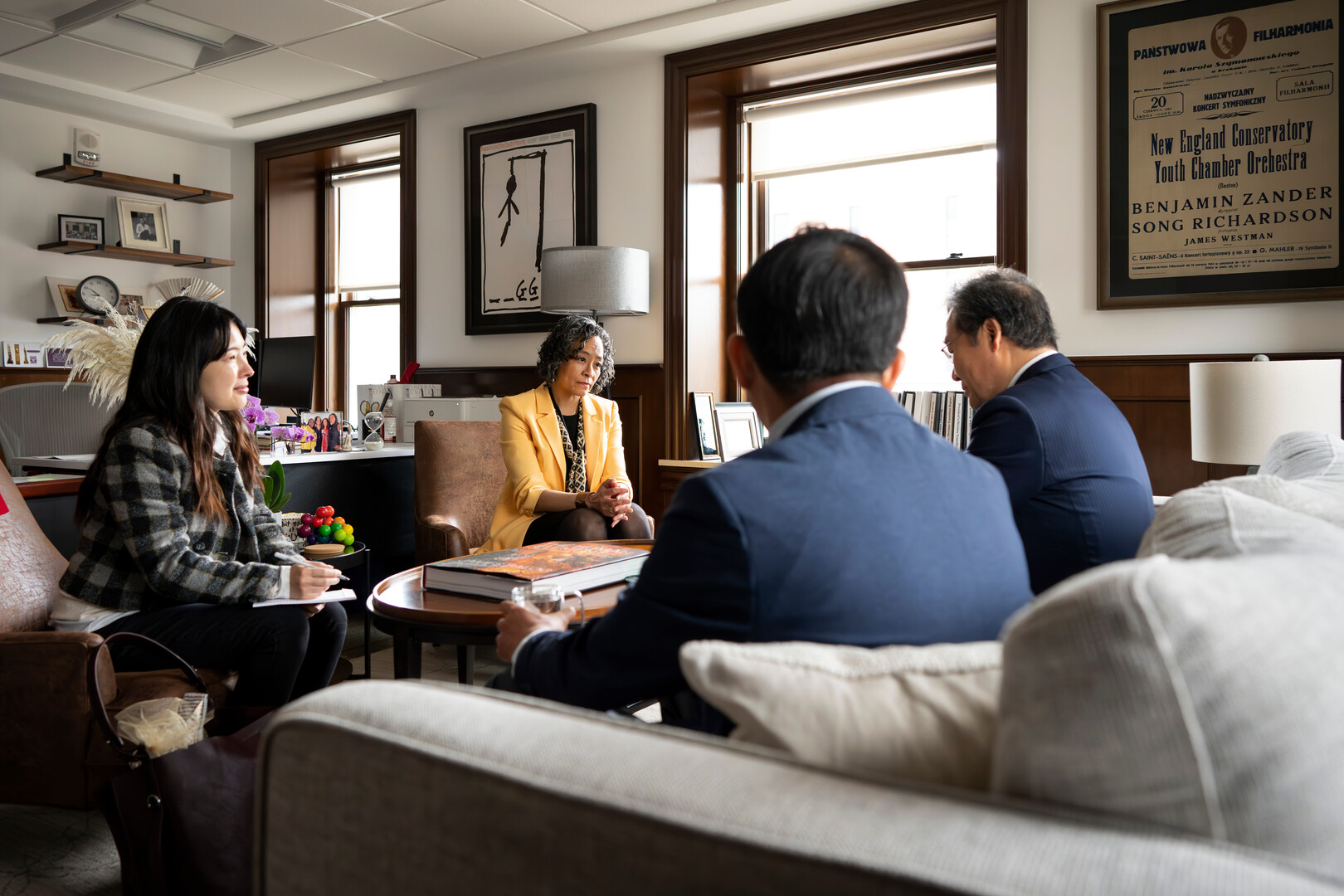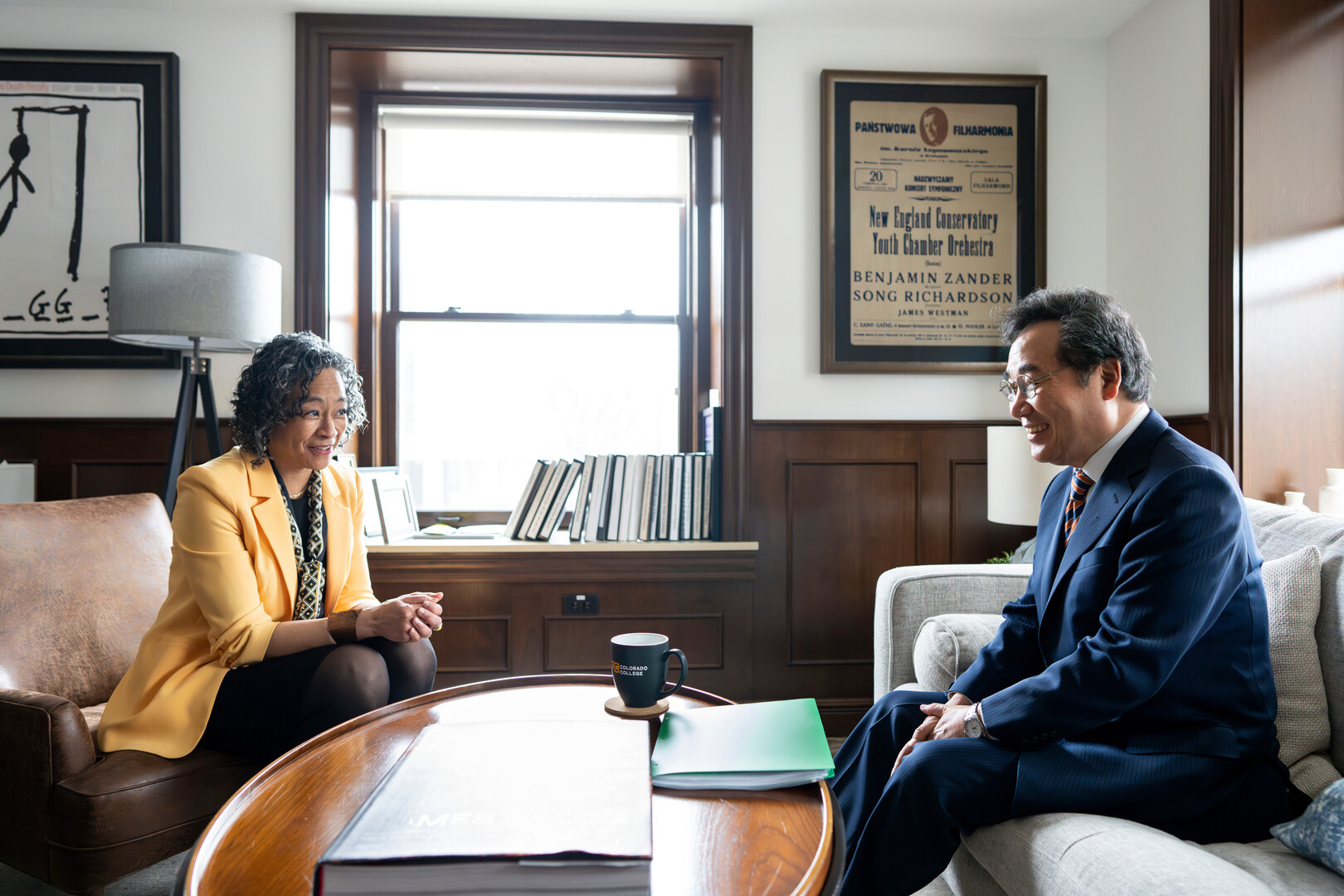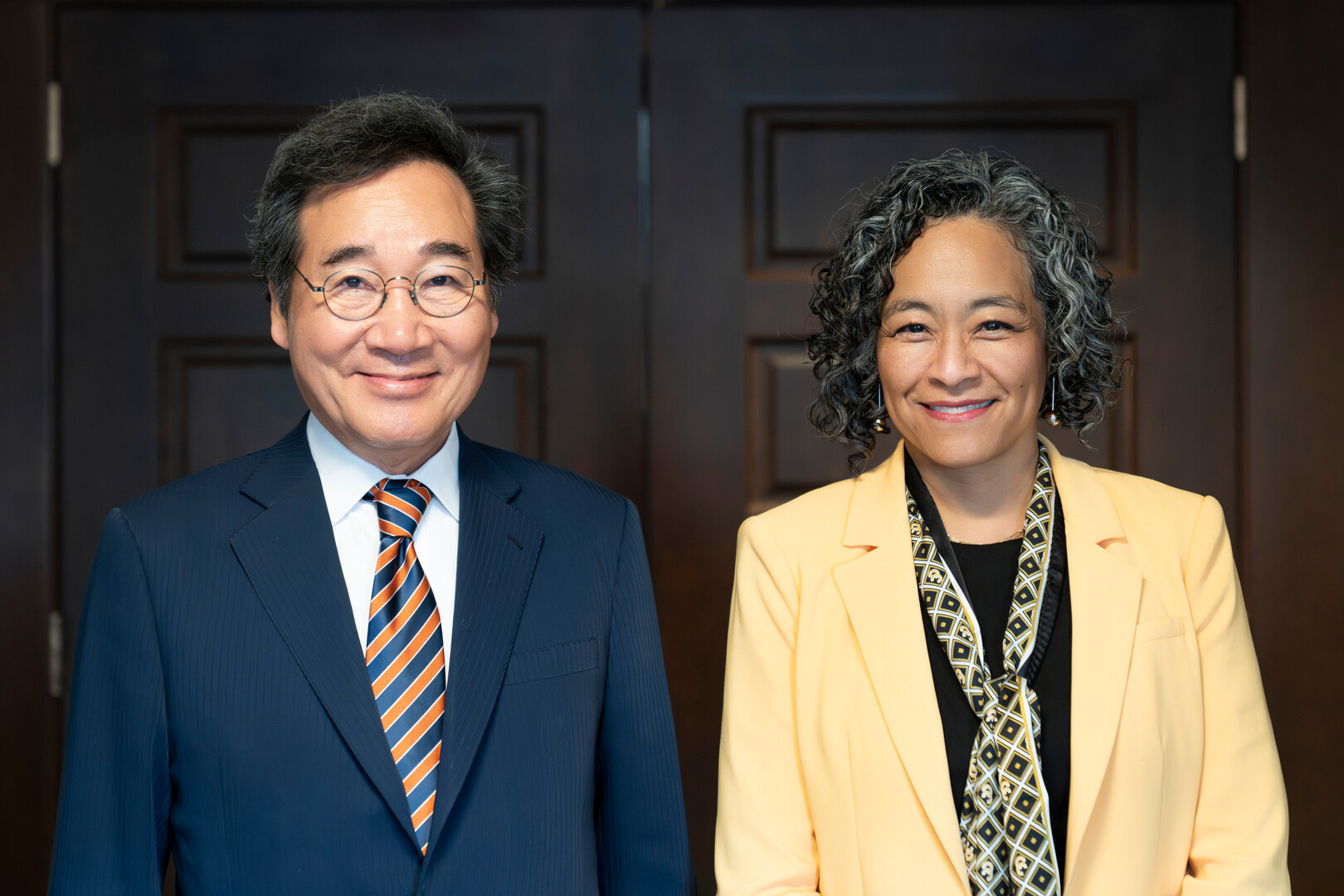“Reading about policy can never fully replace the experience of hearing firsthand about policy from someone who was involved in its very making,” says Jiun Bang, assistant professor of Political Science and Asian Studies.
Bang arranged for Nakyon Lee, the former prime minister of South Korea (2017-2020), to speak to students on campus May 12. About 50 students from political science and economics classes and some faculty listened intently as Lee described what he thinks is needed to achieve peace on the Korean peninsula.
The number one priority, he says, is to end the isolation of North Korea.
“It is impossible to succeed in denuclearization without addressing North Korea’s perception of security threats and their desire for survival—which is far more essential than any other need,” says Lee.
To do that, the former prime minister says South Korea should not build a nuclear weapons arsenal and the U.S. should not take an aggressive stance toward North Korea. Lee says denuclearization should be addressed in parallel with mutually reducing threats and improving relations, adopting a “realistic and pragmatic” approach.
A steady stream of students asked questions of Lee, including HeeYeal Lee, a first-year student interested in history and political science, who was born in South Korea and immigrated to the U.S. as a baby.
“I'm highly fascinated by his approach of an easing of tensions,” shares HeeYeal Lee. “I believe his message comes from a valid perspective of Western antagonization being detrimental to North Korea’s survival. History has shown that aggressive militarization can serve as motivation for conflict. In my opinion, while such policies of détente have had varying degrees of success, it definitely has proven effective in its goal of benefitting our globalized world.”
Bang, who was also born in South Korea and spent part of her childhood there, was impressed by the robust question-and-answer session following the former prime minister’s speech.
“I’m just always happily surprised to see how engaged our CC students are on weighty issues such as denuclearization, especially given our relative disadvantage in terms of proximity to East Asia,” Bang says. “I believe the ability to seriously engage in a challenging and sticky matter like North Korea’s nuclear program, but not lose that sense of hope in the process, is a testament to the CC spirit to ‘want do good in the world.’”
HeeYeal Lee asked the former prime minister about a hypothetical event of Korean reunification happening, should South Korea have nuclear weapons.
“I thought PM Lee’s response about German reunification was beautifully said. Even in a world filled with highly militarized global powers, the current Republic of Germany never sought to possess a nuclear arsenal. Yet, the nation of Germany continues to maintain their significance on the world stage with its impressive economy and peaceful attitude,” he says.
Following the event, the two Lees shook hands as the younger bestowed the esteemed guest with a bouquet of flowers, as is custom in Korean meetings.
“I hope to maintain a strong network of communication with Prime Minister Lee and hopefully, in the future, be directly involved in U.S. foreign policy in East Asia,” HeeYeal Lee says.
Before the speech, the former prime minister met with President L. Song Richardson, who welcomed him, his wife, and two professors from the University of Colorado accompanying Lee to campus.

